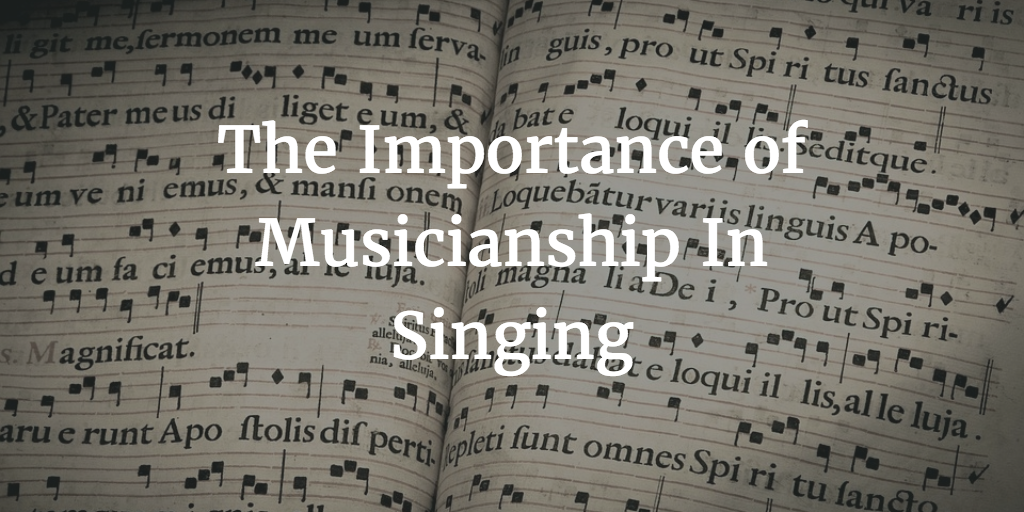Musicianship is a musical term used to describe the skills a musician possesses related to their aural skills; intonation, ear training. Musicianship is absolutely a skill as well that can be learned, and should be carefully honed. Here are three reasons why musicianship is an essential skill in singing:
#1. Sight singing:
There are few instruments that require a finely honed ear in the way that voice does. Sight singing is a bit of a misnomer, because it really is about hearing, and how a singer’s brain perceives what they are hearing. Understanding the nuances between pitches, and how to ‘translate’ what’s in the sheet music to the voice, is essential to learning how to sight sing well!
#2. Blended sound:
Because of the unique timbre of each individual singer’s voice, blending is an essential aspect of the singing experience. This is compounded when singers come together to create blended choral sound. The objective of choral sound is to make many voices sound as one. This can be achieved when singers make a concerted effort to listen to the voices of others and modify their own sound. Musicianship skills allow singers to not only hear the differences between voices, but to analyze what specifically they must change to accommodate blend.
#3. Versatility:
Musicianship skills allow singers to be incredibly versatile in both the genres they sing, as well as in their own vocal technique. Musicianship is what allows the fantastic pitch bending often found in jazz music, and it is a huge contributor to success in such interesting techniques as two-toned singing.
Why else might musicianship be important in singing? Tell us in the comments below!


